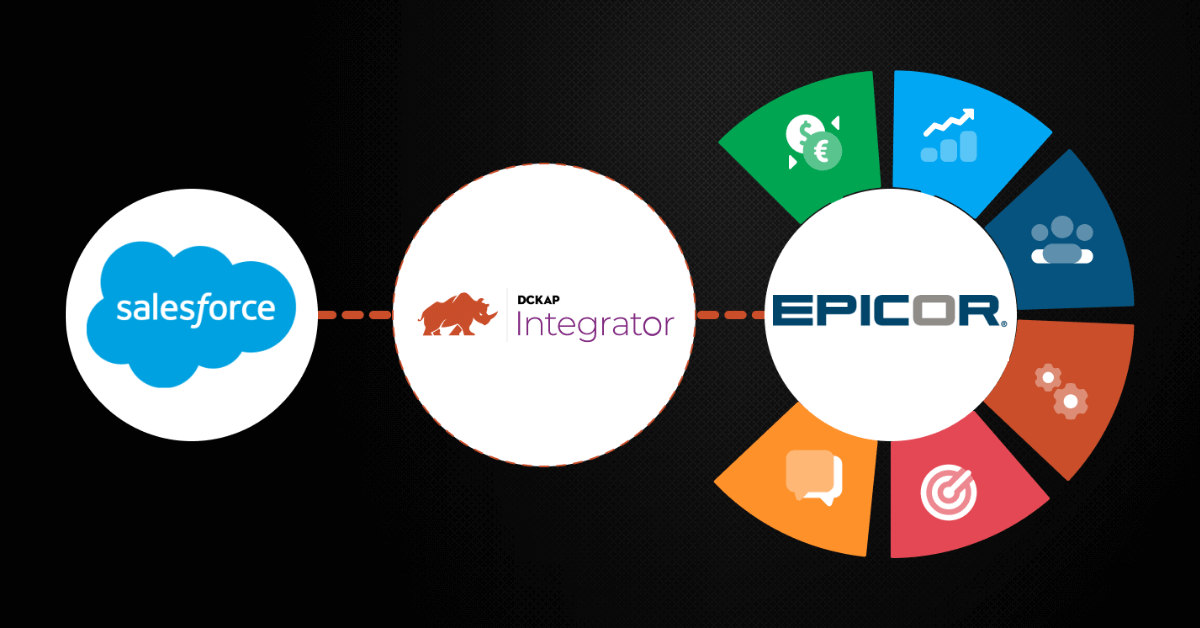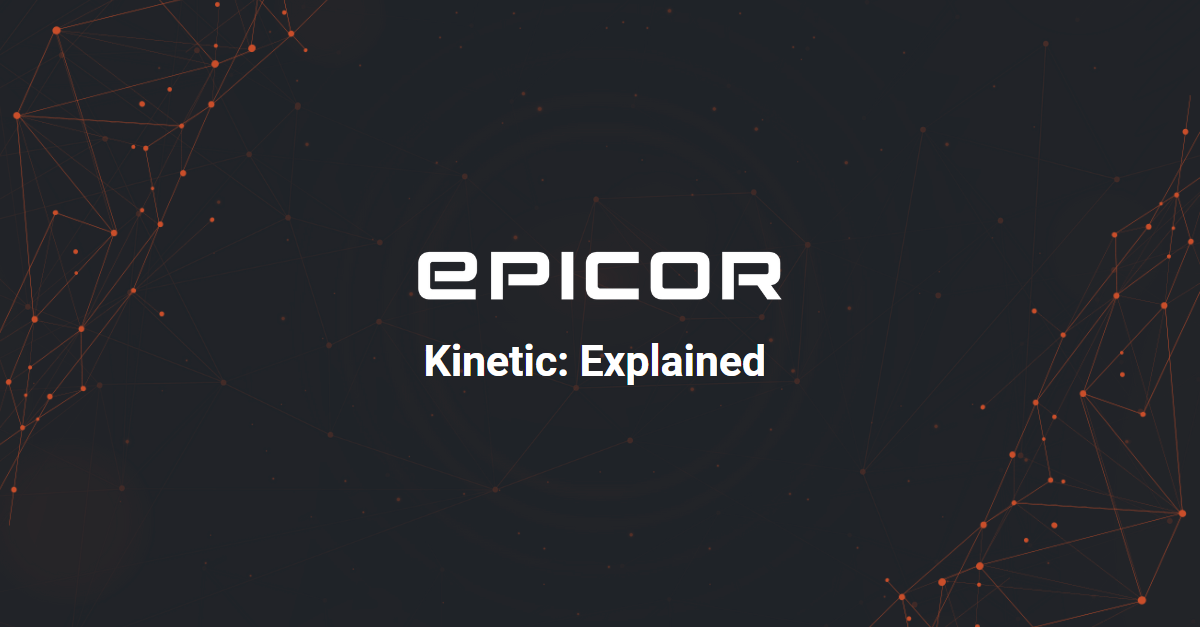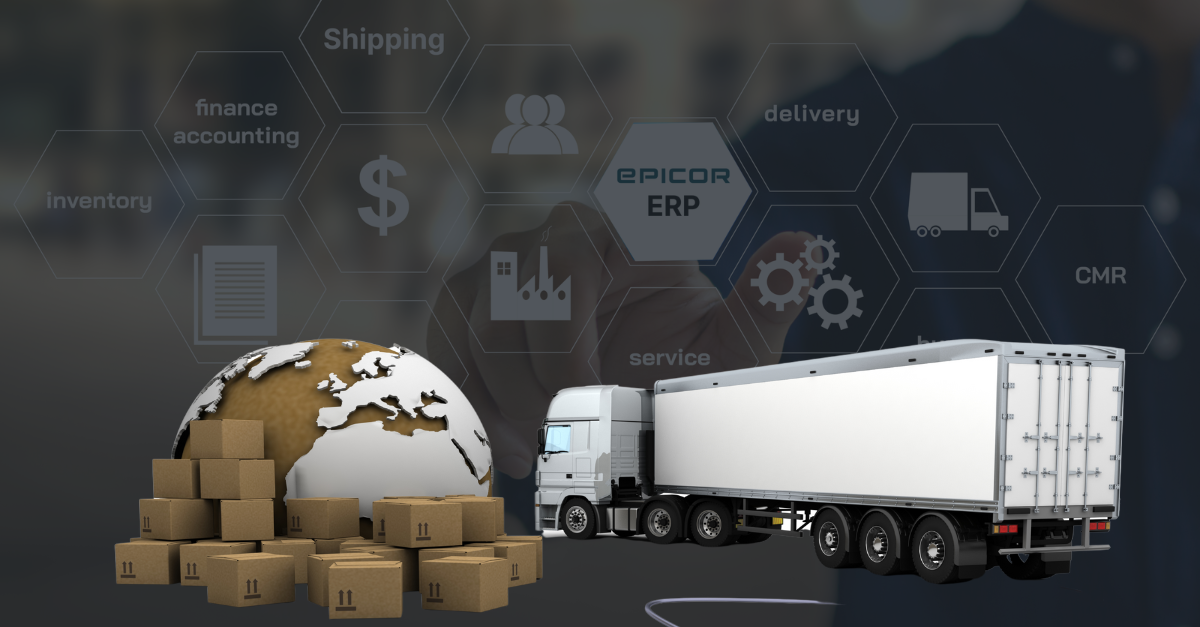Epicor ERP, a strong and comprehensive solution, allows customers to interact with other apps via its rich API (Application Programming Interface). In this post, we will look at the possibilities of Epicor API interfaces as well as some actual use examples to demonstrate the value they provide to businesses.
Contents
Understanding Epicor API
An API (Application Programming Interface) is a set of protocols and tools that allow software components to communicate with one another. APIs play a critical role in enterprise software development by allowing data sharing and enabling system integration. Epicor ERP has an extensive API that allows users to interface with and enhance the software’s features.
SOAP (Simple Object Access Protocol) and REST (Representational State Transfer) protocols are supported by Epicor API. SOAP, which is based on XML, and REST, which is based on JSON, are two methods to web service interfaces. While SOAP was formerly popular, REST has grown in favor due to its flexibility, lighter weight, and better network performance.
Related: What is Epicor Commerce Connect?
Benefits of Epicor API Integrations
Enhanced connectivity: With Epicor API connectors, businesses can connect Epicor ERP to other systems such as CRM platforms, ecommerce platforms, or third-party applications. This interface enables data sharing and assures consistency of information across many systems, minimizing the need for human data entry and decreasing errors.
Real-time data synchronization
Businesses can achieve real-time data synchronization between Epicor ERP and other systems via Epicor API connectors. This synchronization ensures that data is current across all connected applications, resulting in a unified view of the business. Data synchronization in real-time avoids delays and increases operational efficiency.
Process automation
Epicor API interfaces allow enterprises to automate workflows and streamline business operations. Organizations can automate procedures such as order processing, inventory management, and finance processes by integrating Epicor ERP with other systems.
Improved decision-making
By integrating data from several sources into Epicor ERP via API connectors, businesses may gain real-time insights and analytics. Organizations can acquire a comprehensive view of their operations, client relationships, and financial performance by combining data from several platforms.
Recommended Reading: Understanding Epicor ERP Cost and Pricing (2023)
Top Epicor API Integration Use Cases
Order Management
The Epicor API enables organizations to streamline their order management procedures. Organizations can automatically generate orders, update order status, access order details, and track shipments by integrating the API with their ecommerce platform or other order processing systems.
Key Outcomes:
- More accurate orders
- Speedier order fulfillment
- Happier customers
Inventory control
Epicor API allows real-time inventory tracking, allowing organizations to monitor stock levels, get inventory updates, and manage inventory replenishment. They allow integrating the API with their warehouse management system or third-party logistics provider.
Key Outcomes:
- Smoother inventory management processes
- Minimize stockouts
- Timely information
Customer Relationship Management (CRM)
Integration of Epicor API with CRM systems provides firms with a unified view of customer data. Organizations can improve their CRM capabilities by retrieving customer information from Epicor, such as managing customer contacts, recording interactions, and analyzing customer behavior.
Key Outcomes:
- More personalized marketing campaigns
- Better post-purchase experiences
- Improved client retention
Financial Management
Businesses can automate financial procedures and improve data accuracy by integrating Epicor API with financial management solutions. The API integration platform provides the easy transfer of financial data between Epicor and accounting software, such as invoices, payments, and general ledger entries.
Key Outcomes:
- Eliminates manual data entry
- Reduced human error
- Real-time financial insights
Business Intelligence and Analytics
The integration of Epicor API with BI and analytics tools enable organizations to obtain deeper insights into their procurement and operational performance. Businesses can perform advanced analytics, generate reports, and visualize key performance indicators by taking data from Epicor and integrating it with data from other sources.
Key Outcomes:
- Get to know your customers (and their purchasing habits) better
- Identify threats and opportunities
Supplier Management
Epicor API enables companies to link supplier management operations with third-party supplier systems. Supplier onboarding can be automated, supplier information can be retrieved, supplier performance can be tracked, and supplier contracts and price can be managed.
Key Outcomes:
- Better teamwork between departments
- Improved supplier relationships
- Timely deliveries
Reporting and Dashboards
Organizations can produce customized reports and real-time dashboards by integrating Epicor API with reporting and dashboard solutions. Businesses may extract data from Epicor and visualize it in a meaningful way, delivering actionable insights and performance indicators to important stakeholders.
Key Outcomes:
- Avoid missing key data
- Real-time bird’s eye view of the business
- Promote organizational transparency
Relevant Reading: Lisa Pope, President of Epicor, Shares Distribution Industry Insights on the DCKAP Driven Podcast
Your Epicor API Integration Partner- DCKAP Integrator
DCKAP Integrator is a cutting-edge integration platform that empowers distributors to efficiently manage the data flow between various applications, ensuring seamless operations based on evolving business requirements. With its comprehensive suite of integration solutions, DCKAP Integrator enables distributors to make direct updates without relying on developers, eliminating the need for manual synchronization.
As a custom integration platform, DCKAP Integrator offers flexible and tailored solutions to meet the unique integration needs of distributors. It seamlessly connects disparate systems, applications, and databases, allowing for the smooth exchange of data and information across the entire business ecosystem.
Let’s delve into how DCKAP Integrator can revolutionize your Epicor ERP integration, enabling you to make data-driven decisions, enhance collaboration, and optimize your business processes.
Eliminate Manual Data Transfer:
Say goodbye to the cumbersome task of manually transferring data between systems. DCKAP Integrator enables you to automate data synchronization between your Epicor ERP and other business applications, such as CRM, ecommerce platforms, and PIM. By eliminating manual data entry, you save time, reduce errors, and ensure data accuracy throughout your organization.
Data-Driven Decision Making:
Unlock the power of data-driven decision-making by integrating your Epicor ERP with DCKAP Integrator. With a seamless data flow and workflow, you gain valuable insights into your business processes, enabling you to make informed decisions that drive profitability. Access real-time data, analyze trends, and identify areas for improvement, all from a centralized location.
Improved Data Accuracy & Speed:
By integrating your Epicor ERP with DCKAP Integrator, you ensure that changes made within your ERP are immediately reflected across all connected systems. With automated data synchronization, you can trust the accuracy and consistency of your data, avoiding discrepancies and delays. Focus on driving business growth instead of wasting time waiting for data to sync.
Better Sales Funnel Optimization:
Integrating your Epicor ERP with your CRM empowers you with a holistic view of your customers. DCKAP Integrator enables you to gain valuable customer insights, allowing you to optimize your sales funnel and improve conversion rates. Seamlessly track leads, manage customer interactions, and nurture prospects through a streamlined and integrated system.
Prioritize Tasks and Goals:
When your data is synchronized through Epicor API integration, workflow visibility improves, enabling you to prioritize tasks and goals effectively. Seamlessly connect your ERP with project management apps and other systems to enhance collaboration, transparency, and efficiency across your organization. Streamline processes, allocate resources wisely, and drive productivity.
Flexibility & Customization:
DCKAP Integrator eliminates the hassle of customizing product information for dynamic pricing, custom products, and more. With easy mapping and modifiers, non-technical users can integrate all ERP data fields effortlessly. Make changes once, and watch them update across your entire digital ecosystem, ensuring consistency and saving valuable time.
Multi-Platform Integration:
Extend the power of your Epicor ERP by integrating it with other critical business applications such as CRM, ecommerce platforms, PIM, and more. DCKAP Integrator offers seamless integration capabilities across multiple platforms, providing a unified and comprehensive view of your business operations.
Real-Time Data Synchronization:
With DCKAP Integrator, data synchronization is instant and in real-time. Any updates or changes made within your Epicor ERP are immediately propagated across your entire digital ecosystem. Stay on top of your business with accurate, up-to-date information at all times.
Automated Scheduling:
Effortlessly schedule data synchronization from your Epicor ERP to other systems based on your business needs. DCKAP Integrator allows you to define the frequency and timing of data transfers, ensuring smooth operations and eliminating the need for manual intervention.
Advanced Logging and Secure Transactions:
Rest easy knowing that every piece of information transferred to and from your Epicor ERP is logged and backed up automatically. DCKAP Integrator ensures a secure data transfer process with encrypted transactions, protecting your sensitive business data.
Similar Reading: Shopify Epicor Connector: How The P21 Integration Works
Sunrise Electric Supply’s Success Story: Qubesense – Epicor P21 Integration
Sunrise Electric Supply, a leading electrical distributor in the Chicagoland area, faced the challenge of manual data transfer between their ERP system, P21, and their online business platform, Qubesense. Recognizing the need for automation, Sunrise Electric Supply turned to DCKAP Integrator to develop a robust API that would revolutionize their operations and drive growth.
Challenges:
Time-consuming manual data transfer: The flow of data between P21 and Qubesense was a labor-intensive process, draining valuable time and resources from employees.
Lack of consistency: Manual data transfer often led to inconsistencies and errors, impacting the accuracy and reliability of critical business information.
Limited visibility: Without real-time data synchronization, Sunrise Electric Supply faced challenges in gaining visibility into stock levels and making informed business decisions.
Solution:
DCKAP Integrator worked closely with Sunrise Electric Supply to develop a powerful API that seamlessly connected P21 with Qubesense. The integration encompassed a wide range of critical data points, including customer synchronization, inventory updates, order management, product search, and more. With real-time data synchronization, the company could enhance efficiency, accuracy, and decision-making processes.
Benefits:
Enhanced visibility and decision-making: Real-time data synchronization provided Sunrise Electric Supply with accurate and up-to-date information, allowing them to make informed business decisions swiftly and confidently.
Reduced manual efforts and errors: Automation eliminated the need for manual data transfer, significantly reducing the risk of errors and freeing up employees’ time for more strategic tasks.
Improved customer experience: By integrating the ERP data with their ecommerce storefront, Sunrise Electric Supply ensured that customers had access to the most updated product information, pricing, and inventory levels.
Unified access to real-time data: The integration facilitated seamless communication and collaboration by providing a unified platform for accessing real-time data from P21, fostering smoother internal processes and reducing data transfer errors.
Read the full case study here
Harness the Power of Epicor API Integration with DCKAP Integrator
Epicor API integration powered by DCKAP Integrator offers a game-changing solution for businesses seeking to streamline their operations, improve data accuracy, and drive growth. By eliminating manual data transfer, gaining data-driven insights, and enhancing collaboration, businesses can stay ahead of the competition and make informed decisions.
Take the first step towards unlocking the full potential of your Epicor ERP by accessing a no-pressure, free trial and consultation with DCKAP Integrator today. Streamline your business and embrace the power of seamless data integration.




